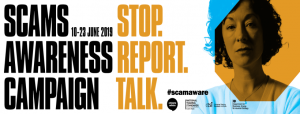
Check if something might be a scam
A scam is a type of fraud in which someone steals your money or information.
You can be scammed online, in person, over the phone, or through the post.
Scams can be difficult to recognise, but there are things you can look out for.
Recognising a scam
It might be a scam if:
- it seems too good to be true – for example, a holiday that’s significantly cheaper than you’d expect it to be
- someone you don’t know contacts you unexpectedly
- you suspect you’re not dealing with a real company – for example, if there’s no postal address
- you’ve been asked to transfer money quickly
- you’ve been asked to pay in an unusual way – for example, by vouchers or wire transfer
- you’ve been asked to give away personal information like passwords or PINs
If you think you’ve paid too much for something
Paying more for something than you think it’s worth isn’t the same as being scammed. Usually, a scam will involve theft or fraud.
You have other rights if you think you’ve overpaid.
If you think you’ve spotted a scam
If you’ve given away money or information because of a scam, there are things you should do. Check what to do if you’ve been scammed.
If you haven’t been scammed but you’ve seen something you think is a scam, you should report it. Find out how to report a scam.
If you’re not sure if something is a scam, contact Citizens Advice consumer service. They’ll give you advice about what might be a scam and the steps you should take if you’ve been scammed.
#scamaware

